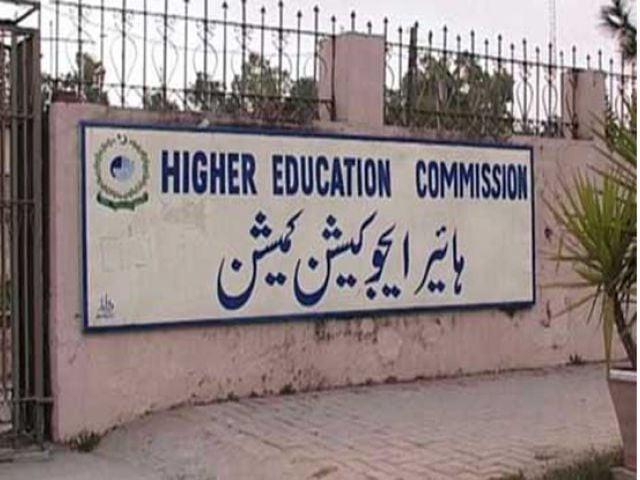Varsity teachers not satisfied by HEC performance
Report notes governing body has yet to fill empty seats

PHOTO: fb.com/Higher-Education-Commission-Pakistan
This was revealed by the State of Higher Education in Pakistan 2017 report. The 29-point report was prepared by the Federation of All Pakistan Universities Academic Staff Association (FAPUASA), Institute for Democratic Education and Accountability (IDEA) and the Civil Society Network Pakistan (CSNP) in collaboration with five other organisations
Despite having Rs90 billion in annual funds, the higher education commission (HEC) was rapidly losing its credibility and reputation owing to poor performance, irregularities, corruption allegations and incapable leadership, shared FAPUASA President Professor Dr Kaleemullah Barech, IDEA Executive Director Salaman Abid, FAPUASA Islamabad Chapter President Dr Shehzad Ashraf and Civil Society Network President Abdullah Malik.
The irregularities, financial illegalities along with inefficiency and poor performance were reported almost daily in many newspapers across the country and is highlighted by senior columnists, international higher education agencies, Parliamentary Standing Committees and all the concerned stakeholders including provincial governments, vice chancellors, civil society and student organizations, they said.
The report noted that in the Federal Audit Report 2016-17, it clearly highlighted that the HEC administration had failed to utilise 49 per cent of the development funds which had been released (Rs373.738 million) due to poor monitoring, ineffective management and weak internal controls.
Moreover, the past three years had shown that of the 149 new development projects, the HEC could only get 66 projects approved. Further, it said that HEC’s 18-member governing body was ineffective and non-functional since eight seats on the governing body were still vacant.
As a result, the HEC was resorting to ad hocism in taking policy decisions. Additionally, over 1,400 PhD holders also suffered due to delays in verification of degrees and missed out on jobs.
Published in The Express Tribune, January 4th, 2018.



















COMMENTS
Comments are moderated and generally will be posted if they are on-topic and not abusive.
For more information, please see our Comments FAQ